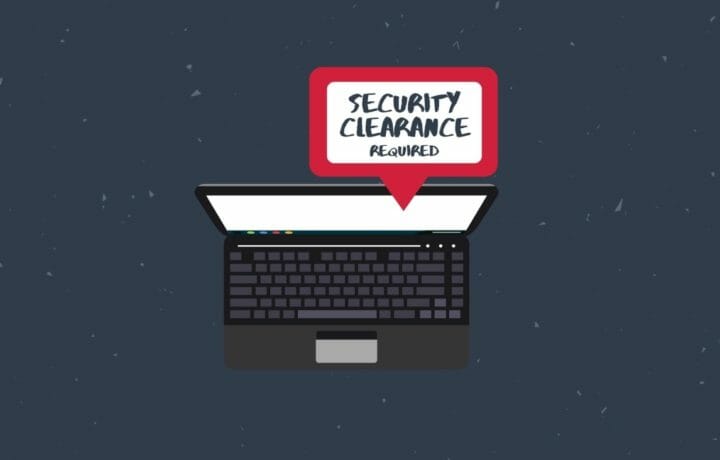Since the widespread outbreak of the novel coronavirus earlier this year the world has continued to evolve and adapt and this includes how security clearances are granted. Even as the country was going into a lockdown mode, the Office of Personnel Management had to ease up fingerprint collection and credentialing standards. That came as federal, state and local offices that collect fingerprints shuttered their doors.
At the time agencies that could continue to collect and process fingerprints were urged to do so, but for agencies that couldn’t there was the option to delay the collection and proceed anyway with onboarding. Previously, an investigation couldn’t move forward until fingerprints had been successfully obtained.
The same month, the director of National Counterintelligence and Security Center (NCSC) issued a statement concerning those who may have been impacted by the shutdown of government offices as a result of the pandemic. In a statement that was released on social media, Director William Evanina noted that the office was “acutely aware of the potential for economic hardship on security clearance holders,” and that those impacted should not be “unduly penalized because of circumstances beyond their control.”
Even as well over 30 million Americans have filed initial unemployment claims since mid-March, those employed in jobs that require a security clearance could remain largely insulated – but that doesn’t mean everyone. The statement reassured those affected that cause is always a mitigating factor when it comes to financial harship, and specifically situations beyond the applicant or clearance holder’s control.
As the MilitaryTimes reported in an op-ed by Andrew Bakaj, a former intelligence officer, individuals are encouraged to manage spending, but also should consider speaking with a financial adviser to address financial concerns head on, and to highlight that the clearance holder acted “responsibly” to address concerns should adjudication proceed to revoke or deny a claim due to economic concerns.
Another adjudicative criteria spotlighted that could become a factor during this time is mental health. Seeking medical or psychological help should not be disregarded, and instead of being viewed negatively by a clearance adjudicator, shows that effort was made to address a situation before it became an actual problem.
The New Realities of Clearance Evaluation
While there may be delays with investigators and adjudications, attorney William Smith writing for Law.com warned that those seeking to gain or maintain a clearance could be expected to adhere to requirements of the process in a timely manner.
The coronavirus pandemic has also forced national security officials to adapt the way they oversee and adjudicate security clearances. This means that even in the era of social distancing, personnel vetting will continue; as well as periodic reviews, continuous evaluations and adjudicative matters.
In some cases this may involve “telework” or activities that can allow this work to be done remotely. Technology will certainly fill the void. As Smith noted, Defense Counterintelligence and Security Agency (DCSA) has begun to rely upon such tools as VTC (video teleconferencing) as well as a remote workforce to conduct investigations.
Likewise, adjudication is still moving forward, and the Department of Defense Consolidated Adjudications Facility (DoD CAF) could be an example of an agency prepared to continue to do its job, as it had implemented various measures that allowed its employees to transition to telework.
What all this means is that while the process to get the clearance could continue to be backlogged, those seeking clearance should not drag their feet but they should also nip any issues in the bud. Time, as they say, remains of the essence.




